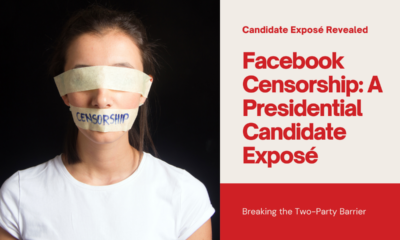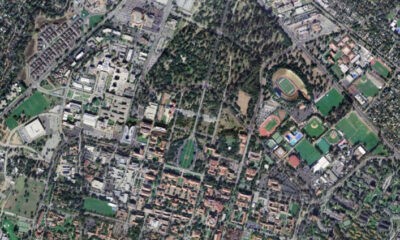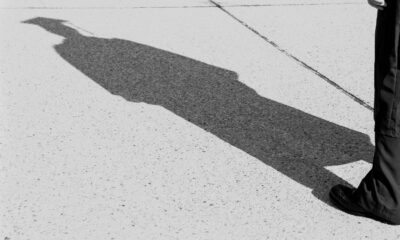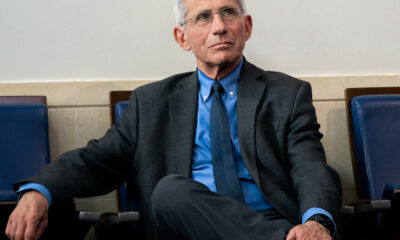First Amendment
This Week in Censorship | February 19-25
Reviewing another week in censorship – Julian Assange, Aleksei Navalny, Paul Thacker, the NewsGuard scandal, and the Samizdat Prizes.
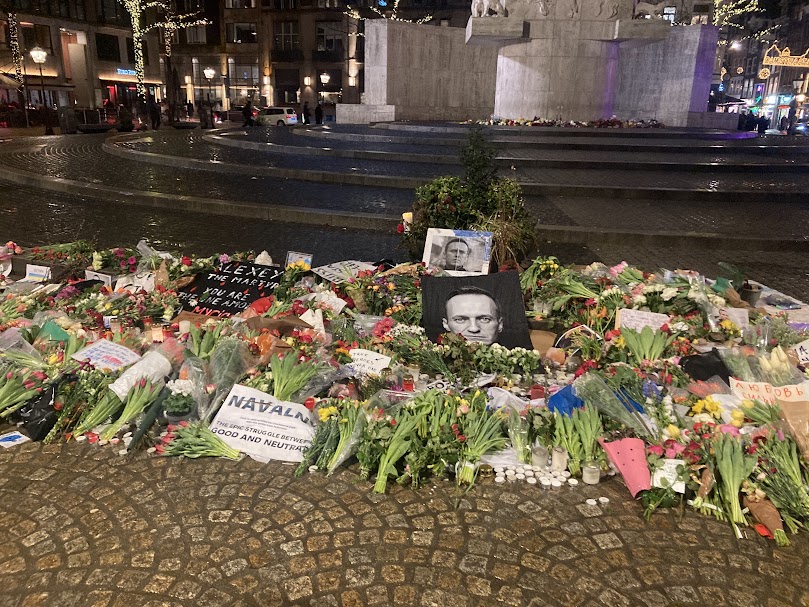
This week’s curation at RealClear Censorship was unavoidably shaped by two events of historic importance in the resistance to global repression, totalitarianism and censorship. Alexey Navalny—Putin opposition leader, dissident, anti-corruption activist—died in a Siberian prison, where he had been held in solitary confinement on dubious, exaggerated charges for three years. Before his death on February 16, most Americans’ familiarity with Navalny began with his poisoning in 2020, after surviving which he was able to record a confession from the FSB operative who had laced his underwear with a nerve agent. This week also saw journalist Julian Assange’s final request for further appeal to the high court in London, which, should it fail, will almost certainly result in his extradition to the United States where he faces a myriad of federal espionage charges that threaten to imprison him for 175 years.
Assange, founder of WikiLeaks, published hundreds of thousands of classified military intelligence documents from American wars in Afghanistan and Iraq, many containing sensitive and compromising information related to American allies and servicepeople. He infamously referred to Afghan civilians who had cooperated with U.S. forces as disposable and has been widely criticized for his unwillingness to redact the even the riskiest, least salient pieces of information.
It is difficult, however, to map these critiques onto a legitimate argument in favor of his prosecution. As James Kirchick argues in his New York Times column on the hearing this week, the invocation of the 1917 Espionage Act is draconian, repressive and “constitutes a serious threat to the First Amendment.” Assange’s imprisonment is not an inevitability. Obama administration officials declined to pursue it, citing concerns for press freedom. The charges were initiated under the Trump administration and have been upheld under the Biden administration. We must advocate for the fullest constitutional protection for journalists, even—especially—when we find their views odious.
On Assange, this week we encourage you to read not only Kirchick’s “The Extradition of Julian Assange Threatens Press Freedoms,” but also “Why even Julian Assange’s critics should defend him” by Thomas Fazi in UnHerd.
On Navalny, see the publication of his correspondences with Soviet dissident Natan Sharansky in The Free Press, as well as Masha Gessen’s eulogy in The New Yorker and Pamela Paresky’s interview with Sharansky, which covers Navalny, antisemitism and free speech.
We also included this week a piece by Paul Thacker detailing a scuffle on X between 538 founder Nate Silver and Dr. Sander van der Linden, a sociologist and “misinformation” researcher at Cambridge who has become one of the most prominent authorities on so-called fake news and how to combat it. Silver asserted that the “broad definition of misinformation is incoherent,” and that therefore most attempts to combat it function only to stifle dissent and curtail good-faith debate. The episode was minor but noteworthy in that it exemplified all that is wrong with the new industry of self-appointed judges of truth and falsity. Van der Linden, citing an old article that labeled Covid lab-origin theories racist and conspiratorial, accused Silver of himself spreading misinformation for claiming that the debate remains unresolved. The scientific question of Covid’s origin is indeed very much open, and evidence suggesting a lab leak is mounting. To claim otherwise—and to call a journalist a liar for entertaining the debate in good faith—should disqualify one from any position of authority over how information and opinion is distributed online. Van der Linden was also revealed to have engaged in a years-long campaign of fraudulent self-promotion on Wikipedia, leading to the suspension of several of his anonymous accounts on the website.
RealClearPolitics publisher David DesRosier appeared on the Ricochet Podcast with James Lileks, Peter Robinson and Rob Long this week, where he walked through the ongoing attempts by misinformation watchdogs NewsGuard and the Global Disinformation Index, among many others, to target, penalize and silence journalism outlets with which they disagree. RealClearPolitics was recently placed on the GDI’s “ten riskiest” news websites blacklist, a tactic explicitly designed to deprive outlets like ours—“scrupulously down-the-line,” as described by Ricochet—of essential advertising revenue with unsubstantiated misinformation labels. These organizations have received money from the federal government and refuse to amend their ratings when presented with evidence that disputes their claims.
To close this week out, we are thrilled to invite you, our readers, to the inaugural Samizdat Prize Gala, presented by the RealClear Media Fund. The Samizdat Prize recognizes public figures who demonstrate an unflinching commitment to telling the truth in the face of coordinated campaigns of censorship and cancellation. This year’s honorees are Dr. Jay Bhattacharya of Stanford University, Miranda Devine from the New York Post and Matt Taibbi at Racket News. Join us if you can at The Breakers in Palm Beach, Florida on March 7 for the awarding and a discussion of censorship and freedom of speech hosted by Dave Rubin. Follow the above link to secure your tickets—with your presence and support, our mission to defend and maintain a truly free society only strengthens.
This article was originally published by RealClearPublicAffairs and made available via RealClearWire.
Charlie Tidmarsh writes for Real Clear Public Affairs
-

 Executive4 days ago
Executive4 days agoSecret Service chief gets no solace
-

 Executive3 days ago
Executive3 days agoWaste of the Day: Louisville Taxpayers Pay Nearly $600,000 For Empty Building’s Maintenance, Security
-

 Guest Columns4 days ago
Guest Columns4 days agoFear Itself: Democrats’ Favorite Strategy Caused Their Current Chaos
-

 Executive3 days ago
Executive3 days agoWhere is Joe Biden – or Jill?
-

 Executive1 day ago
Executive1 day agoWaste of the Day: Throwback Thursday: Cities Used Crime Prevention Funds on Soccer Games, Paper Shredding
-

 Executive2 days ago
Executive2 days agoFacile and politically motivated suggestions
-

 Civilization4 days ago
Civilization4 days agoBuild Iron Dome in the United States To Prepare for Israel’s Worst Day
-

 Executive4 days ago
Executive4 days agoThe Emerging GOP Plan To Beat Kamala Harris



